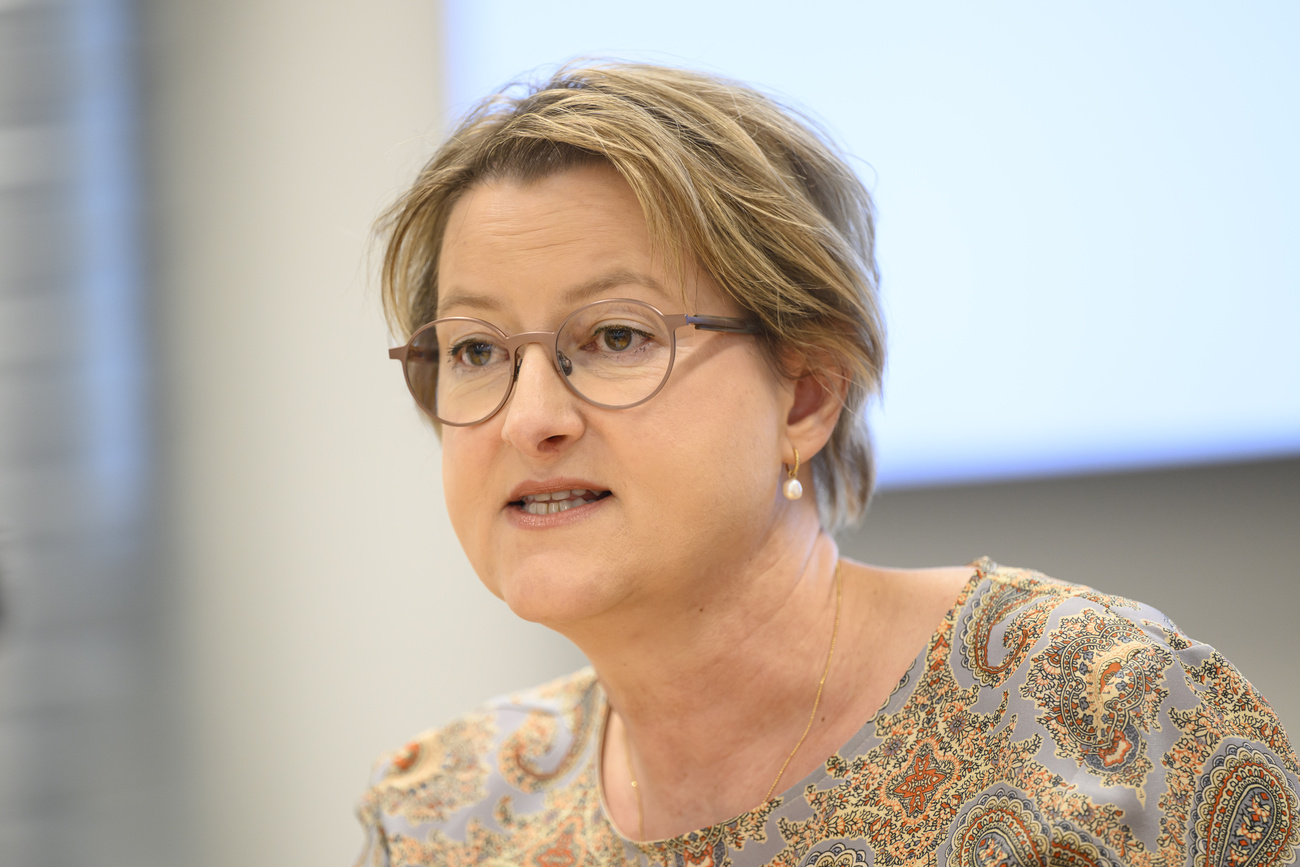
Imaging method provides multi-level view of cell samples

Researchers at the University of Zurich (UZH) have developed a novel method to visualise proteins and generate a comprehensive map of cellular organisation, which could help improve cancer diagnosis and therapy selection.
The method, dubbed 4i for iterative immunofluorescence imaging, is an improvement over standard imaging techniques used in biomedicine because it can generate a systematic survey of the cellular landscape, increasing more than tenfold the number of proteins visible per sample.
According to a UZH statementExternal link, 4i makes it possible to see the distribution of at least 40 proteins in thousands of cells at the same time, and across various levels, from the tissue down to subcellular structures.
“Imagine cell biologists to be journalists. Every experiment is an interview with our cells. With conventional immunofluorescence I can ask three questions, whereas with 4i I can have a discussion on more than 40 topics,” explained Gabriele Gut, a researcher at UZH’s Institute of Molecular Life Sciences and lead author of a paper published this week in the journal ScienceExternal link.
The researchers hope the new method will advance precision medicine, notably in cancer diagnosis.
“We hope that 4i and multiplexed protein maps will help researchers to understand processes better that have been at the centre of biological research for decades,” she added.
The new method can also be used to determine the effects of pharmacological substances on the organisation and physiology of cells.

In compliance with the JTI standards
More: SWI swissinfo.ch certified by the Journalism Trust Initiative






























You can find an overview of ongoing debates with our journalists here . Please join us!
If you want to start a conversation about a topic raised in this article or want to report factual errors, email us at english@swissinfo.ch.